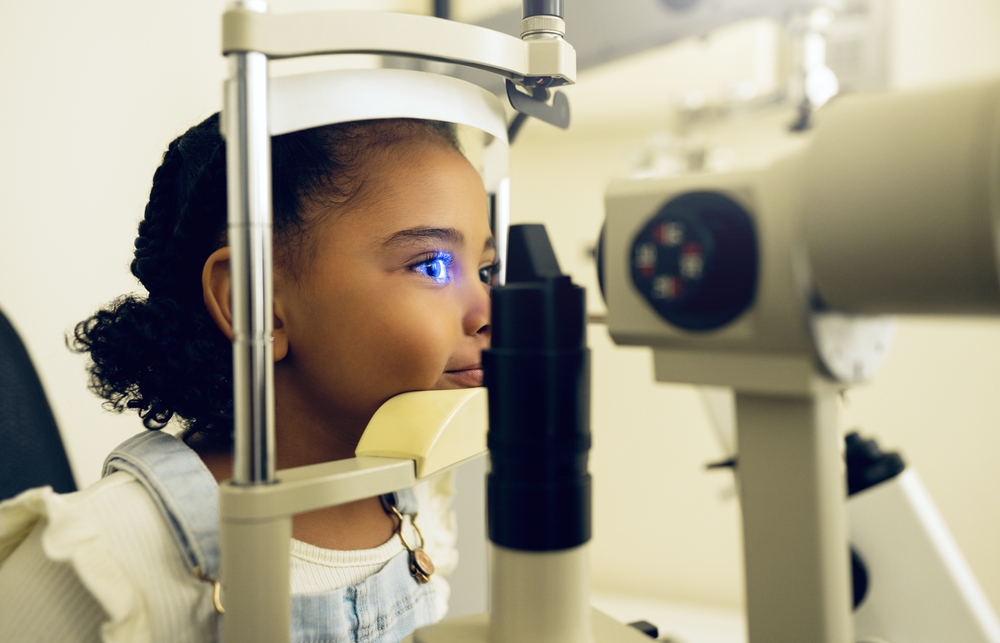
Pediatric eye exams play a vital role in setting your child up for academic success. Vision is a critical component of learning, and any underlying issues can significantly impact a child's ability to thrive in the classroom. By prioritizing regular eye exams, you can help your child overcome potential vision challenges and pave the way for a rewarding and fulfilling educational experience.
Understanding the Impact of Vision on Learning and Academic Success
Vision is the primary sense that children rely on for learning and academic performance. When a child's visual system is not functioning optimally, it can lead to a range of difficulties. Uncorrected refractive errors can make it challenging for a child to focus on classroom materials, leading to fatigue, headaches, and poor academic performance. Vision problems can make it harder for a child to track words on a page, leading to difficulties with reading, writing, and overall academic progress. Additionally, vision issues can sometimes manifest as behavioral problems or attention deficits, as a child may struggle to keep up with the demands of the classroom.
Common Eye Problems in Children that Can Affect Their Education
Some of the most common eye problems that can impact a child's education include:
Refractive Errors: Nearsightedness (myopia), farsightedness (hyperopia), and astigmatism are the most prevalent vision issues in children.
Amblyopia (Lazy Eye): This condition occurs when one eye develops poorer vision than the other, often leading to depth perception and coordination problems.
Strabismus: Also known as crossed or wandering eyes, this condition can cause double vision and difficulty with depth perception.
Convergence Insufficiency: This issue makes it challenging for the eyes to work together, leading to eye strain, headaches, and difficulty with reading and close-up work.
Early detection and treatment of these conditions are crucial for ensuring your child's academic success.
Recognizing the Signs of Vision Issues in Children
Signs of vision problems in children can be subtle but are crucial to recognize for early intervention. Common indicators include frequent squinting, tilting the head, or covering one eye to see better. Children with vision issues may also experience headaches, eye strain, or complain of blurred or double vision. Difficulty reading, avoiding close-up tasks, or sitting too close to the TV can also signal a problem. Additionally, poor hand-eye coordination, clumsiness, or frequent eye rubbing may suggest an underlying vision issue. If you notice any of these signs, it's essential to schedule an eye exam to ensure your child's visual health.
The Role of Pediatric Eye Exams in Early Detection and Treatment of Vision Issues
Comprehensive pediatric eye exams are the key to identifying and addressing vision problems in children. These exams assess a child's visual acuity, eye coordination, focusing ability, and overall eye health. By catching vision issues early, you can take the necessary steps to provide your child with the appropriate treatment and support, whether it's prescription lenses, vision therapy, or other interventions.
Regular follow-up eye exams are essential to monitor your child's vision development and ensure that any existing conditions are properly managed. As children grow, their visual needs can change, and it's vital to stay on top of these changes to prevent any setbacks in their academic progress. Adhering to the recommended schedule of eye exams, typically once a year, can help identify and address any new or worsening vision problems promptly.
Book Your Child’s Back-to-School Eye Exam with Eyes of Starwood Today
Prioritizing pediatric eye exams is a crucial investment in your child's academic success and overall well-being. By ensuring your child's visual health is optimized, you can help them navigate the demands of the classroom with confidence, focus, and the ability to thrive.
At Eyes of Starwood, we are dedicated to providing comprehensive eye exams and personalized treatment plans to address any vision issues your child may be facing. Visit our office in Frisco, Texas, or call (972) 544-4300 to schedule an appointment and take the first step towards setting your child up for back-to-school success.








